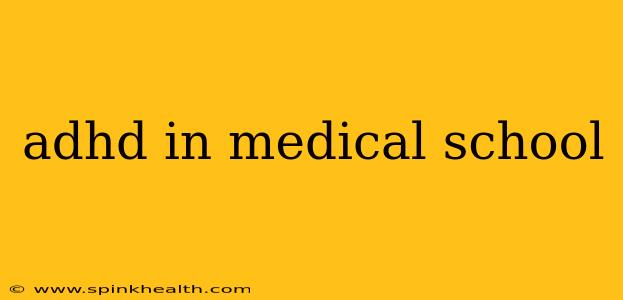Navigating the Labyrinth: ADHD in Medical School
The hallowed halls of medical school. A place of relentless pressure, demanding schedules, and an ocean of information to absorb. For most, it's a challenging journey. But for those with ADHD, it can feel like navigating a labyrinth blindfolded, a constant battle against inattention, impulsivity, and hyperactivity. This isn't a story of defeat, however; it's a story of resilience, adaptation, and the triumph of the human spirit in the face of adversity.
My journey began, like many others, with a whirlwind of excitement and apprehension. The dream of becoming a doctor had fueled me for years, but the reality of medical school hit with the force of a tidal wave. Lectures blurred into indistinguishable streams of information, deadlines loomed like menacing shadows, and the mountain of reading seemed insurmountable. I felt like a hamster on a wheel, running faster and faster, but getting nowhere. The constant pressure, combined with my undiagnosed ADHD, left me overwhelmed, exhausted, and questioning my ability to succeed.
It wasn't until I hit a breaking point – a spectacular academic stumble – that I finally sought help. The diagnosis of ADHD was a turning point, not an end. It provided a framework to understand my struggles and, more importantly, a roadmap to manage them.
What are the common challenges faced by medical students with ADHD?
This is a question many students grapple with, and understandably so. The intense academic demands of medical school directly clash with many common ADHD symptoms. Time management, organization, and sustained focus are paramount in this field, yet these are often areas where individuals with ADHD struggle. The relentless pressure to perform can exacerbate existing symptoms, leading to increased anxiety, stress, and burnout. Many students find themselves constantly battling procrastination, struggling to prioritize tasks, and feeling overwhelmed by the sheer volume of information they need to process.
How can ADHD affect academic performance in medical school?
The impact of ADHD on academic performance can be significant. Difficulties with attention and focus can lead to missed lectures, incomplete assignments, and poor exam performance. Impulsivity can result in rash decisions, such as poor time management or inadequate preparation. Hyperactivity can manifest as restlessness during lectures or difficulty sitting still for extended periods. These challenges, combined with the already rigorous demands of medical school, can lead to increased stress, anxiety, and even academic failure.
What support systems and strategies are available for medical students with ADHD?
Fortunately, there’s a growing awareness and acceptance of ADHD within the medical community. Many medical schools now offer support services specifically tailored to students with learning differences. These can include academic advising, tutoring, and access to assistive technologies. Furthermore, effective strategies, such as medication management, cognitive behavioral therapy (CBT), and organizational tools, can significantly mitigate the challenges posed by ADHD.
How can medical students with ADHD effectively manage their time and stay organized?
Time management and organization are not superpowers; they’re skills that can be learned and honed. Effective strategies include breaking down large tasks into smaller, manageable chunks, utilizing visual aids like planners and calendars, setting realistic goals, and incorporating regular breaks to maintain focus. Technology can also be a powerful ally, with apps designed to aid with time management, task prioritization, and note-taking. Furthermore, seeking support from friends, family, or academic advisors can provide crucial accountability and encouragement.
Are there accommodations available for medical students with ADHD?
Absolutely! Many medical schools offer a range of reasonable accommodations to support students with ADHD. These can include extended time on exams, access to quiet study spaces, and permission to record lectures. It's crucial to initiate a conversation with the disability services office at your medical school to explore available options and determine which accommodations would best suit your individual needs. Remember, seeking these accommodations isn't a sign of weakness; it's a sign of strength and a commitment to your success.
My journey has been a testament to the power of self-awareness, support, and adaptation. While medical school remains challenging, it’s no longer an insurmountable obstacle. With the right support and strategies, individuals with ADHD can not only survive but thrive in this demanding environment. It's a journey that requires resilience, determination, and a willingness to embrace the tools and strategies available to succeed. And ultimately, it's a journey worth taking.

